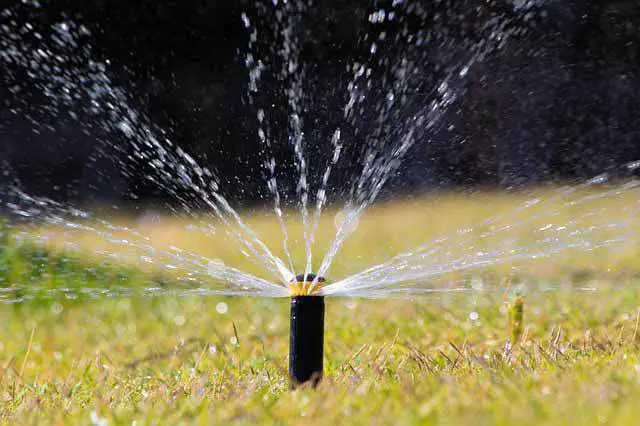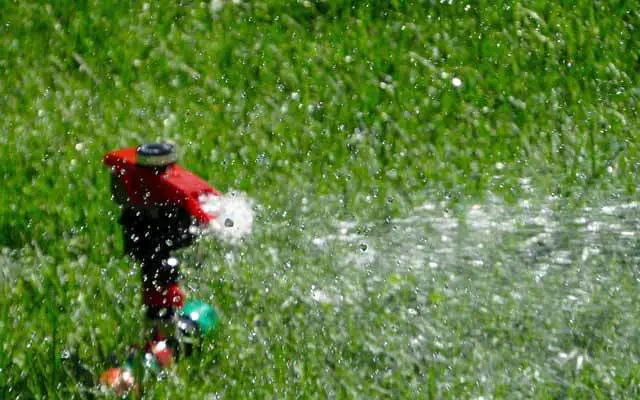How Often And Best Time To Water Lawn in Hot Summer
Do you think that watering your lawn/garden is a no-brainer? If your answer is yes, then you need to think again! If you water your plants for too long, it is an open invitation to fungus.
On the other hand, watering them less will cause the roots to become shallow.
If you water your plants in the evening, it is a free feast for insects.
If the water content is too high, half of the moisture is lost due to evaporation.
No matter how green your thumb is, you likely know that plants require water to reach their full potential; it is just basic science that was taught to us in middle school.
However, it is also important to know that incorrect watering techniques can put your plants at risk for insect infestation and diseases, or might even kill them.
In some countries, poor watering habits are actually a crime, because the drought conditions in these nations have led to restrictions imposed by the government.
And it should be since water is a precious resource, whether you are a novice or professional gardener.
Whether you want to water the blooming perennials in your backyard or a simple houseplant, you need to know how often and best time to water lawn in hot summer weather.
You need to pay attention to the good and bad practices of watering plants and you will reap healthy specimens.
Before diving into how often to water lawn in summer, we need to understand some other aspects.
Read more:
Table of Contents
Why Is Watering Important For Your Garden?
This particular section might sound like a middle school science class.
However, it has been a long time and it is important to keep your memory refreshed.
Water moves minerals throughout the plant body, cools them down during the hot days, and provides structural support.
Consider the plant cells as water balloons.
When they are filled with water, they become stiff and your plants will stand upright.
However, where there is no water, the cells start deflating and the plant gets wilted.
This is one of the surest signs that your plant requires water.
While plants do produce cellulose to keep its shape, it is actually the water pressure that helps the plants retain their shape better.
An invisible process known as transpiration takes place when you water your plans.
As we know, water from the leaves is evaporated by the sun, which causes water loss.
This is a good sign because water goes to the place where it is required the most.
Ideally, water in the soil is pulled up by the roots.
However, if the roots are dry, water starts evaporating from the leaves.
As a result, the plants become deflated, which is a clear indication that the plant requires water.
Watch this video to get a better idea.
Does Watering Grass In The Sun Burn It?
This is quite a common dilemma faced by gardeners, both amateurs and professionals.
Does watering grass in the sun burn it? This is quite a sensible question because water droplets act as magnifying glasses that can focus the sun rays and burn the grass blades underneath.
Thankfully, water cannot ‘burn’ grass – this means that you can put this theory to rest.
According to experts, if your lawn grass is showing dead spots, it is never because of water droplets.
There are several reasons for this phenomenon.
For instance, heat can cause your lawn to become yellow, which means watering your lawn is the best remedy.
Rather than settling on the grass and play the role of magnifying grass, these droplets quickly evaporate when the sun rays hit them directly.
Hence, it is recommended that you water your lawn early in the morning to prevent the droplets from getting evaporated.
What Are Some Useful Tips For Watering Plants And Grass During The Summer Months?
What is the best time to water lawn in summer – this is another question asked by most gardeners.
While your plants may appreciate the sun, the hot summer temperature often makes it difficult to maintain your garden/lawn.
Similar to humans, heat makes the plants thirsty, and making the necessary adjustment to the watering schedule is something that even the most experienced professional often struggle with.
Always Start Early
This one is easy; if you want your plants to soak as much water possible, you need to start watering them early in the morning.
This way, the plants will have ample time to absorb the water.
Hence it is very important that they have water before the day gets hotter.
Always make use of the best garden hose for the job; some options include the Flexzilla hose, Flexi Hose Nozzle, and Gardguard Garden Hose.
Do Not Water The Leaves
Most people sweep the spray broadly while watering their gardens – this is a common mistake.
While watering your backyard might be a fun experience, this method is not very effective.
In fact, it is quite harmful to the plants.
Of course, it is understandable that avoiding the leaves is not completely possible, you should avoid them for two primary reasons – one, it is not beneficial since water can only be absorbed from the roots.
The second is that excess water increases the possibilities of diseases and fungal infections that thrive in moisture.
Quality Before Quantity
How much should you water your lawn in the summer? The answer to this is quality before quantity.
If you water a lot, it can lead to overwatering and your garden/lawn can become waterlogged.
This also prevents oxygen from reaching the roots of the plants.
The solution here is to water deeply to a good 5- to 6-inches.
This will ensure that the water penetrates deep enough so that the roots can absorb water effectively.
In hindsight, it will also prevent water wastage.
Water For The Weather
This will depend on the outdoor temperature.
If the weather seems mild, you can water your plants once every 3-4 days.
However, as the temperature rises, the heat can cause the moisture to evaporate.
This means that you will have to increase the frequency of watering the plants; it is recommended that you start watering your plants once every two days.
How Often Should You Water Your Lawn In Hot Weather?
Since no two same plants are the same, this means the amounts of watering you will have to do will vary.
So, How can you water your lawn in 90 degree weather? In such cases, you need to know the background of your plants – whether they are tropical plants or rainy ones, and such.
If you have plants that are native to desert environments, like succulents and cacti, they tend to survive in dry conditions and do not require a lot of watering.
When you are watering these plants, you can give them a soak.
However, you need to wait for a few weeks, or months, before watering them again.
For plants that love humidity, like ferns, you need to water them 1-2 times a week.
Another aspect that you need to consider if you are looking for the answer is the size of the plant.
For smaller plants with smaller pots, the quantity of the soil is less.
This means that it will dry out faster, as compared to pots for larger plants.
Hence, smaller plants will require more water than larger plants.
Most people also have doubts at what temperature do you stop watering grass.
The answer to this question depends on the country you reside in.
If you live in a nation that faces extreme summer seasons like Sri Lanka and India, you might have to water the plants and grass every day.
However, if you live in a country with mild summer temperatures like European nations, watering the lawn/garden once every 2-3 days should be more than enough.
Setting Up A Watering Schedule
While plants do not reject water, the timing is very important.
One of the biggest mistakes of watering your garden/lawn is setting up a watering schedule.
Sticking to an exact schedule may be harmful to your plants.
Only water the plants when you feel the soil is dried out by two-inches.
You can make use of your fingers to determine the soil moisture levels.
You also need to mind the season when you water the plants.
As mentioned above, summertime is when your plants will require the most amount of water, and vice versa during the winter season.
Conclusion
It is important to know how often to water lawn in hot summer weather and best time to do it.
Summer season is the time when plants face the most danger of drying out and wither away.
However, if you are able to understand and follow the tips mentioned above, you should be able to maintain your lawns and gardens and keep their green throughout the hot summer days.
Our recommendation for the best garden hose is the Gardguard Garden Hose.
If you have any questions, you can leave them in the comment section below.
We will try to answer and clear all your doubts as soon as possible.




